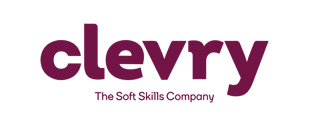In this module, we'll learn more about the personality questionnaires, ability tests and situational judgement tests we have available on the Clevry platform.
>> To go to the next module (Module 3) click here
Assess Across the Employee Lifecycle

For recruiters, psychometrics are invaluable in the selection and matching process. The wide selection of personality reports can aid the decision process and help shortlist based on the suitability of the job.
Once a candidate has completed the personality questionnaire, the results can be used to generate interviewer reports. These reports provide deeper insights into a candidate's strengths and weaknesses, guiding interviewers to ask more targeted questions and make more informed decisions.
Upon hiring, onboarding reports derived from the same psychometric data can help new managers understand how to best manage, motivate, and reward their new employees. This ensures that new hires are engaged from their first day and that managers are well-prepared to integrate them into the team.
Psychometrics continue to be valuable post-hire, aiding in development and performance management. Feedback sessions, goal setting, and appraisals can all be enhanced by understanding an employee's personality profile. This allows for tailored development plans that play to the individual's strengths and address their weaknesses.
Exploring Personality Questionnaires

As the name suggests, these are self-reported assessments where candidates respond to a series of statements, indicating their level of agreement to that statement. There are no time limits because we're measuring typical personality traits, not how quickly they can take a questionnaire. Remember, there are no right or wrong answers—just different personalities suited for different roles.
Personality questionnaires measure typical personality traits across five key dimensions:

- Interpersonal Style: How the individual works with others.
- Thinking Style: Their approach to tasks and decision-making.
- Emotional Style: Their reactions in various work situations.
- Motivation: What drives them at work.
- Culture Fit: The type of environment they thrive in.
Each dimension includes multiple scales, and each scale is measured by responses to six statements. The candidate's responses are compared to a norm group to provide context and a benchmark.
Tailoring Questionnaires to Roles
Our platform allows for the creation of bespoke questionnaires, tailored to specific job roles. This customization ensures that only relevant personality traits are measured, aligning with any competency or values framework the client might be using. For those who prefer not to create a bespoke questionnaire, we offer core and enhanced questionnaires, such as the Core Questionnaire (21 scales) and the Leadership Questionnaire (30 scales), suitable for a range of roles. Please bear in mind that different personality questionnaires will generate different reports. Ensure you are picking the right questionnaires for the correct reports.

Understanding Ability Tests

Ability tests differ from personality questionnaires in that they have right and wrong answers and fixed time limits. The time the candidate takes to complete the test does not factor into their score. This is because we are measuring maximum performance. Each test assesses different cognitive abilities relevant to various roles.
- Verbal Ability: Understanding and analysing written information.
- Numerical Ability: Interpreting numerical data.
- Checking Test: Identifying errors in materials or data.
- Abstract Reasoning: Working with new concepts and logic.
- Mechanical Ability: Applying mechanical and physical laws to problems.
These tests are available at three levels:
- Essential: The Essential tests were designed primarily for manufacturing environments and public utilities. The instruments are suited to organisations which have a strong Production/Engineering focus. Within this industrial sector, the instruments are relevant to a range of occupational groups
- Enhanced: The Enhanced tests have been designed to be appropriate across a broad range of difficulty levels. This means that they are suitable for the assessment of a range of individuals from those who have little or no educational qualifications to those who have achieved A-levels or post-school Diplomas/Certificates.
- Expert: The Expert series has been designed to be appropriate for the assessment of individuals of graduate calibre. Candidates assessed using the instruments have typically achieved at least A-levels or post-school Diplomas/Certificates. Expert is the highest level of assessment we offer.
It is important that you choose the correct level of test for the candidate. You'll want a test level that is not too hard, but not too difficult. To find out more about the levels, as well as job role examples, click here.
Situational Judgement Tests

SJTs present candidates with hypothetical workplace scenarios and ask them to choose the most and least effective responses. These tests are designed to assess behavioural tendencies and future job performance. They are engaging for candidates and provide a realistic job preview, helping both the employer and the candidate understand the suitability of the role.
We have a few off-the-shelf options, including Call Centre, Graduate/Managerial and Leadership. Learn more about these SJTs here.
Using Psychometrics Effectively
Psychometrics can be used at various stages of the recruitment process:
- Sifting: When there are high volumes of candidates, ability tests and SJTs can be used to screen candidates by adding a cut off score.
- Pre-Interview: Personality questionnaire results should be used to gain more insight before an interview, to craft your interview questions and to make a well-rounded, final decision. rather than to screen candidates out.
- Onboarding and Development: Psychometrics are valuable for understanding new hires and ongoing employee development.
